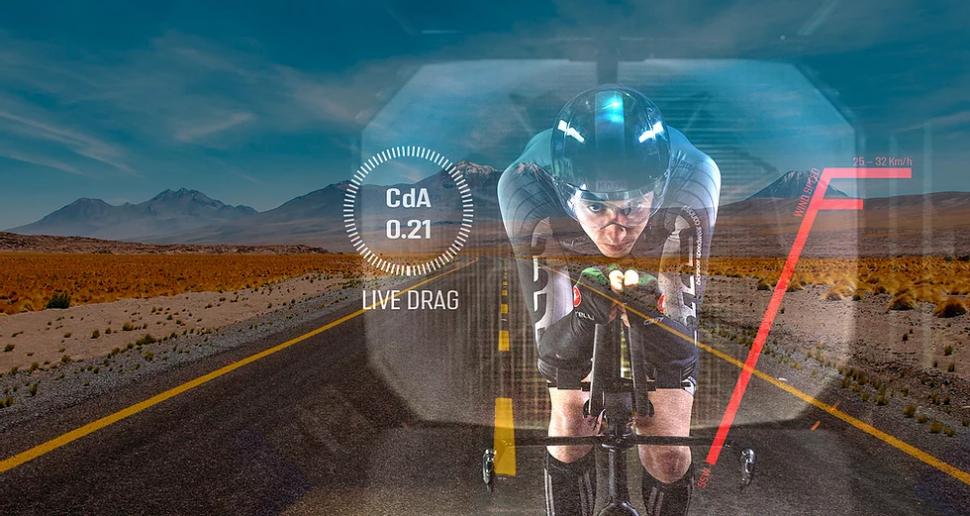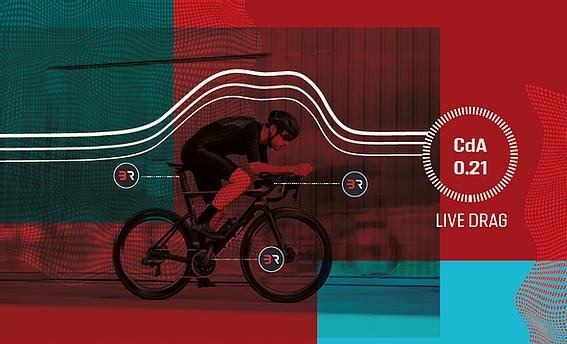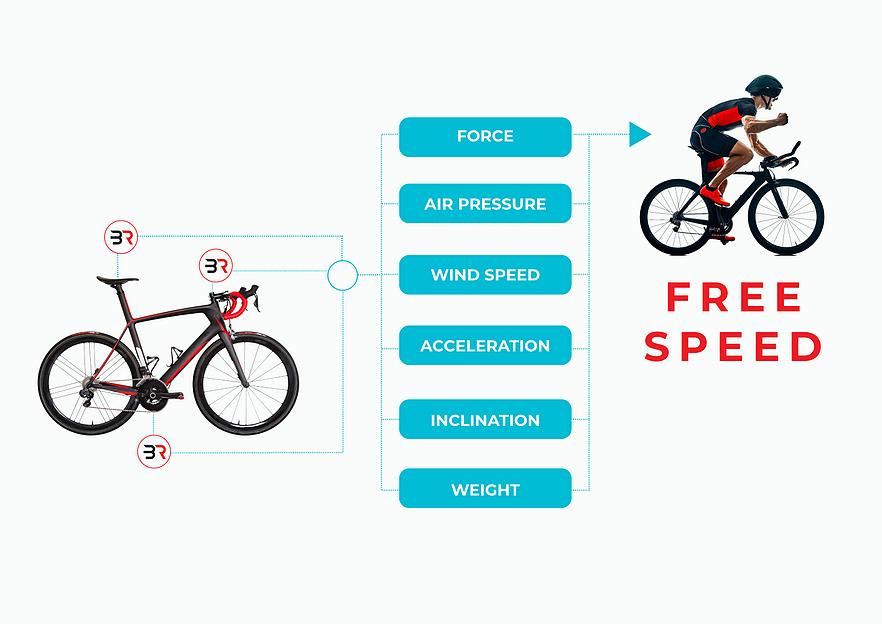- News
- Reviews
- Bikes
- Accessories
- Accessories - misc
- Computer mounts
- Bags
- Bar ends
- Bike bags & cases
- Bottle cages
- Bottles
- Cameras
- Car racks
- Child seats
- Computers
- Glasses
- GPS units
- Helmets
- Lights - front
- Lights - rear
- Lights - sets
- Locks
- Mirrors
- Mudguards
- Racks
- Pumps & CO2 inflators
- Puncture kits
- Reflectives
- Smart watches
- Stands and racks
- Trailers
- Clothing
- Components
- Bar tape & grips
- Bottom brackets
- Brake & gear cables
- Brake & STI levers
- Brake pads & spares
- Brakes
- Cassettes & freewheels
- Chains
- Chainsets & chainrings
- Derailleurs - front
- Derailleurs - rear
- Forks
- Gear levers & shifters
- Groupsets
- Handlebars & extensions
- Headsets
- Hubs
- Inner tubes
- Pedals
- Quick releases & skewers
- Saddles
- Seatposts
- Stems
- Wheels
- Tyres
- Health, fitness and nutrition
- Tools and workshop
- Miscellaneous
- Tubeless valves
- Buyers Guides
- Features
- Forum
- Recommends
- Podcast
TECH NEWS
 2021 Body Rocket BMC
2021 Body Rocket BMCBMC partner with real-time aero data tech developers Body Rocket
The Brighton-based tech company Body Rocket is joining forces with Swiss bike brand BMC to refine its device which provides real-time drag measurements for cyclists.
The partnership is said to provide Body Rocket development opportunities, by being able to refine and perfect the accuracy of its device on BMC bikes, while also giving BMC a performance insight into the link between its bikes and the athletes riding them.
Body Rocket says its technology will provide “accurately measured aerodynamics data for cyclists in real-time and in real conditions, on the road”—with this accuracy claimed to be within 0.3% of wind tunnel data.
Body Rocket put this video together when it was raising money for the project on CrowdCube last year (its target was £80,000 and it raised over £250,000) which briefly explains the concept.
From Body Rocket CrowdCube on Vimeo.
Unlike existing products which provide aerodynamic data using estimates to calculate drag, Body Rocket says that its patented aero system directly measures drag force and is said to use some of the same technology as wind tunnels.
The system is fitted discreetly to the bike and consists of three sensors which are positioned on the stem, seat post and pedals, to constantly collect data.
Body Rocket says this gives a more complete picture of a cyclist’s aerodynamics than a wind tunnel because of the wider range of different wind conditions encountered.
With Body Rocket’s technology, riders are said to be able to make decisions about when and how to adjust positions to optimise their performance as conditions shift from headwinds to crosswinds.
Using Garmin’s ConnectIQ platform, metrics like drag and wind direction/speed can be displayed on your GPS unit.
“With the body accounting for 80% of drag, empowering the rider with the ability to use live data to optimise their body performance tool,” says Body Rocket.
"After each session you will have a comprehensive picture of your aerodynamic data which you can analyse to identify incremental improvements."
The only other real-time drag measuring device we've used on road.cc is the Velocomp AeroPod.
The Body Rocket device should be available to buy at the end of 2021.
The initial product, which will include a power meter, is expected to launch at a price somewhere from £1,499 to £1,999.
Anna has been hooked on bikes ever since her youthful beginnings at Hillingdon Cycle Circuit. As an avid road and track racer, she reached the heady heights of a ProCyclingStats profile before leaving for university. Having now completed an MA in Multimedia Journalism, she’s hoping to add some (more successful) results. Although her greatest wish is for the broader acceptance of wearing funky cycling socks over the top of leg warmers.
Latest Comments
- Clem Fandango 20 min ago
Not guilty eh? Must've been one of those self-driving cars. With the sun in its eyes.
- Sriracha 27 min 10 sec ago
I thought bikes for general use had a shorter reach and a higher stack, compared to pro-race machines which have a longer reach over a lower stack....
- wtjs 33 min 52 sec ago
It does require at least some 'I' to be able to deploy 'AI' effectively.
- wtjs 37 min 47 sec ago
Excellent group of links, Bungle! Thanks. They will go into my list for the probably doomed attempt to expose the bloody awful and anti-cyclist...
- wtjs 42 min 25 sec ago
But the Information Commissioner (who is really the Information Restriction Commissioner, see below for his Decision Notice) agreed with Lancashire...
- ErnieC 1 hour 5 min ago
Exactly. I wonder why so many are OK with UAE and Bahrain competing when clearly they should not be there.
- HollisJ 1 hour 22 min ago
In technical terms it makes zero difference to me, I think I just have some kind of emotional attachment to Italian made steel for some reason. My...
- Simon E 1 hour 27 min ago
Not that many, I'd wager. And refurb surely won't have the same margin as new....



Add new comment
4 comments
I am using velocomp aeropod, I get Live CDA windspeed values on my garmin using connectIQ and all that data is reported back on garmin, everything you have reported on
Isn't this what Areopod does for a fraction of the price? Just asking.
Yes. I find some of the claims made in the video to be doubtful. It is physically impossible, for example, to "directly" measure aerodrag of a moving object. It's always an indirect measurement. Such measurement can be quite accurate when using an extensive pressure rake (essentially an array of sensors measuring the momentum loss of the wake left behind) but this system, with so few pressure sensors, necessarily works the same way as Aeropod does: get power meter output, divide by ground speed, estimate and subtract rolling and drivetrain resistance, divide by the square of the measured airspeed and you have an estimate of CdA.
The claim of accuracy within 0.3% of a wind tunnel is nonsense. Even tunnels do not have that kind of accuracy, much less repeatability. Who are they kidding?
Body Rocket is different from all other devices.
It is unique because it is the only direct force drag meter and it is the only system that has been proven directly against wind tunnel measurements. Other products are indirect force systems that rely on a power meter reading and a number of estimates.
Body Rocket's three sensors on the bike collect all the data that is needed to calculate the rider's drag force in real time. This is quite different from the on-bike aero devices. They require estimates to be made of rolling resistance and drivetrain friction losses.
There are two problems with estimates.
The first is that they can be wrong.
The second is that forces being estimated can change during a ride.
Body Rocket is so accurate because it eliminates any need for estimates of those enigmatic and variable forces. Our sensors isolate the bicycle from the rider so its rolling resistance and drivetrain friction are removed entirely from the equation.
This leaves us with clean, estimate-free data about the rider's own aerodynamics.
No estimates, no guesstimates, consistent accuracy.
Body Rocket's technology is validated against the current gold standards. The wind tunnel is the gold standard for measuring aerodynamic drag force and we don't know of any way that is as accurate and repeatable. The University of Southampton has one of the best full scale wind tunnels in the UK.